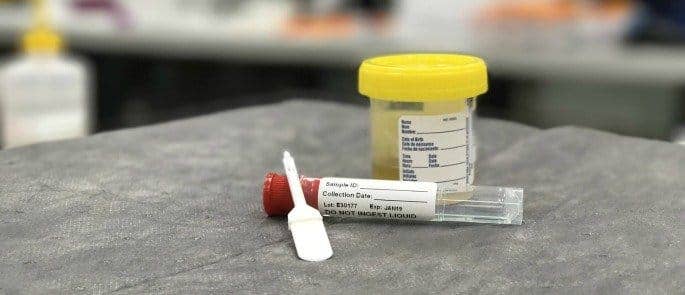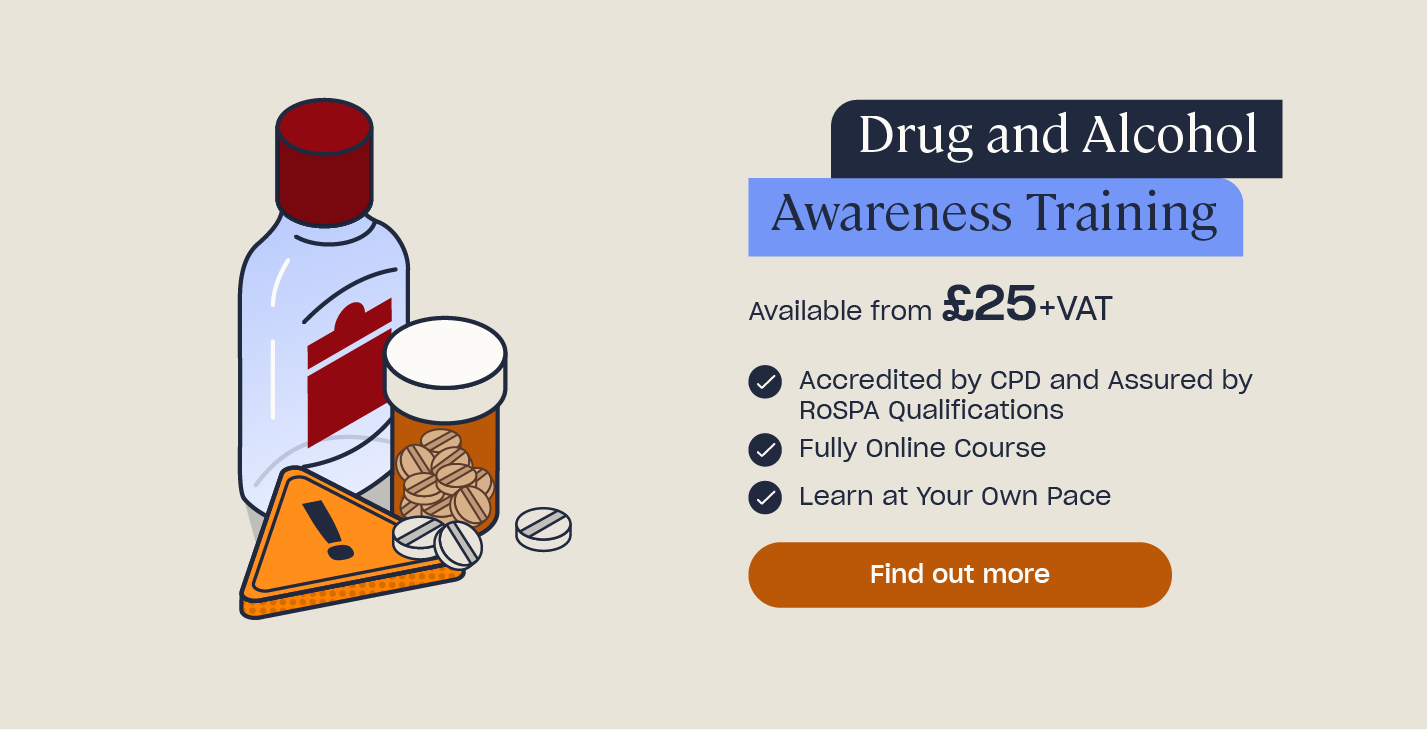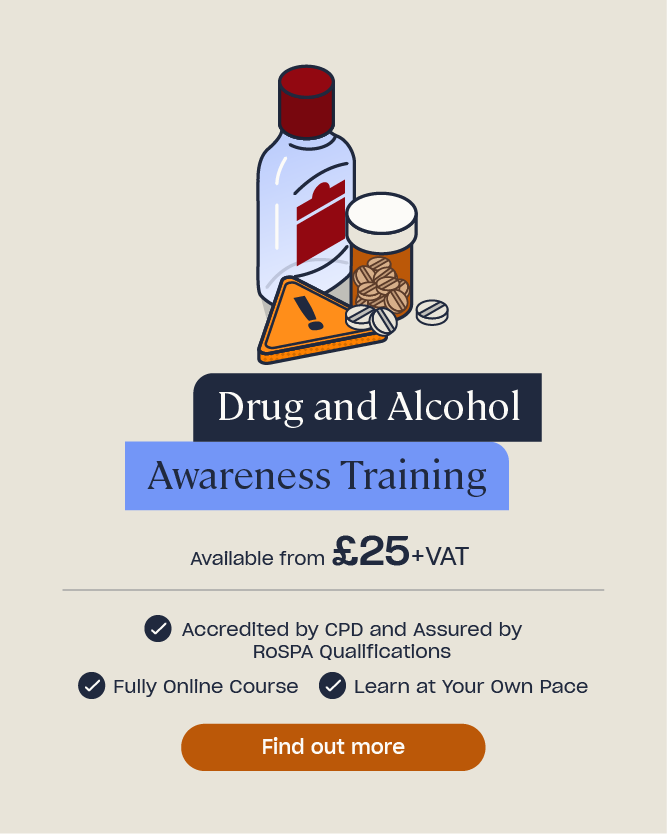Drugs in the Workplace: What Employers Need to Know
Managers and HR staff are in a unique position to tackle substance misuse in the UK. In fact, because employees spend so much time at work, managers, and colleagues are on the front lines of prevention because they are situated to spot and manage a problem. It is, therefore, vital that managers understand how to handle a problem, what their legal responsibilities are, and what substance misuse looks like in the UK.
High-risk occupations include hospitality, construction, sales and management, the armed forces, law enforcement, and artistic industries like writers, musicians, and actors.
Who Abuses Drugs and Alcohol?
There is no model or profile of someone who abuses drugs or alcohol and it can happen to anyone at any time. Indeed, most of the time problems can be insidious and creep up on users over time.
The UK is the worst offending country for prescription drug abuse in Europe. With painkillers, anti-anxiety medicines, and antidepressant drugs presenting a devastating problem.
The UK is also one of the worst countries for binge drinking and alcohol consumption has increased 50% since the 1970s.
And in 2016, 2.7 million people in England and Wales reported taking illicit drugs. Cannabis is the most commonly used drug in the UK (with most users smoking or ingesting the drug on a frequent basis), and cocaine is the second most commonly used drug.
Effects of Substance Abuse in the Workplace
Badly managed substance misuse has serious consequences. In the past, bad management of misuse had led to the deterioration of health and relationships, increased accident rates, absenteeism, and diminishing levels of productivity from the individual and their team.
Therefore, taking a proactive approach to the misuse of drugs in the workplace is advantageous to all. Not least because when a business doesn’t manage substance misuse effectively, they often experience:
- A damaged reputation.
- A lack of productivity.
- Accidents ranging from minor to fatal.
- A loss of morale in the organisation or within a team.
- A breakdown in working relationships.
- Potential legal costs.
And that’s not all, a badly managed problem can lead to financial problems for the individual, a breakdown in relationships with family, and has historically led to unemployment, domestic abuse, and homelessness in some cases.

Signs of Drug Use at Work
If you have concerns about an employee who may be struggling with substance misuse, some signals suggest that an employee is abusing substances. The following is a non-exhaustive, but comprehensive list of substance abuse warning signs at work:
- An inability to carry out work-related duties.
- Inconsistent job performance.
- Frequent small accidents.
- Lateness.
- Numerous unexplained absences (on average, addicts miss ten work days for every one missed by other employees).
- Paranoia and aggression
- Bloodshot eyes or signs of tiredness.
- Overreactions to criticism.
- Dental problems.
- Sudden weight loss/gain.
- Unsteady gait.
- Bouts of manic activity.
- Sluggishness.
- Neglecting responsibilities.
- Participating in dangerous or criminal behaviours, such as disorderly behaviour, carelessness, drink driving or theft.
- Neglecting or damaging working relationships.

Workplace Drug Testing
Drug testing isn’t recommended, or often, a good idea. This is because it creates a culture of distrust and a substance user may find ways to trick the process. However, if your field is a high-risk environment for substance misuse, you could consider integrating drug and alcohol testing into your organisational policy on drugs and alcohol.
If you do want to make drug and alcohol testing a part of your policy, you can buy drug and alcohol testing kits online. These kits may include:
- A digital breathalyser.
- Single-use breath alcohol strip detectors.
- Mouthpieces (to use with the breathalyser).
- Drug test cups (to screen urine and saliva).
Urine and saliva testing can detect the use of cannabis, cocaine, opiates, amphetamines, benzodiazepines, tramadol, ketamine, methadone, methamphetamine, and MDMA.

Aside from technology, managers can use visual assessment measures to detect levels of intoxication and impairment. The police often use the field impairment test which test includes five assessment measures:
- The ‘pupil measure test’ looks at the size, condition, and reaction to light of pupils.
- The ‘Romberg test’ which involves standing still, tilting the head back and counting to 30 seconds to test balance and judgement of time.
- The ‘walk and turn test’ which may indicate impairment if someone stumbles or steps off the line.
- The ‘one leg stand test’ which evaluates balance.
- The ‘finger to nose test’ which assesses coordination.
These tests require personal judgement to make an assessment of intoxication.
How Can I Help?
One effective way to influence the mental, physical, economic, and social wellbeing of employees is to promote a ‘health culture’ through awareness campaigns.
Researchers have proven that awareness campaigns that attempt to scare people away from drug use ineffective. Instead, campaigns are more effective when they promote a wider stance of healthy living. Your campaign can be as simple as a notice board in the staff room or toilets, or you could encourage a sponsored event like Dry January.
A noticeboard with information on support can be a simple way to remind employees that support is there! And it can also go a long way to creating an environment where employees and service users feel able to come forward and speak to managers about issues.
Managers and HR staff also need to learn about substance misuse so that they can spot the signs and understand how to offer support. Managers also need to be familiar with their key legal responsibilities, and you can accomplish this through training.
Need a Course?
Our Drug and Alcohol Awareness Training provides learners with strategies and guidance to support employees and service users who have problems with substance misuse.
What to Read Next:
- Drug and Alcohol Awareness Quiz
- Workplace Health and Wellbeing Quiz
- Drug and Alcohol Policy Template
- A Guide on Recognising the Signs of Drug and Alcohol Abuse
- Drug and Alcohol Awareness Training











